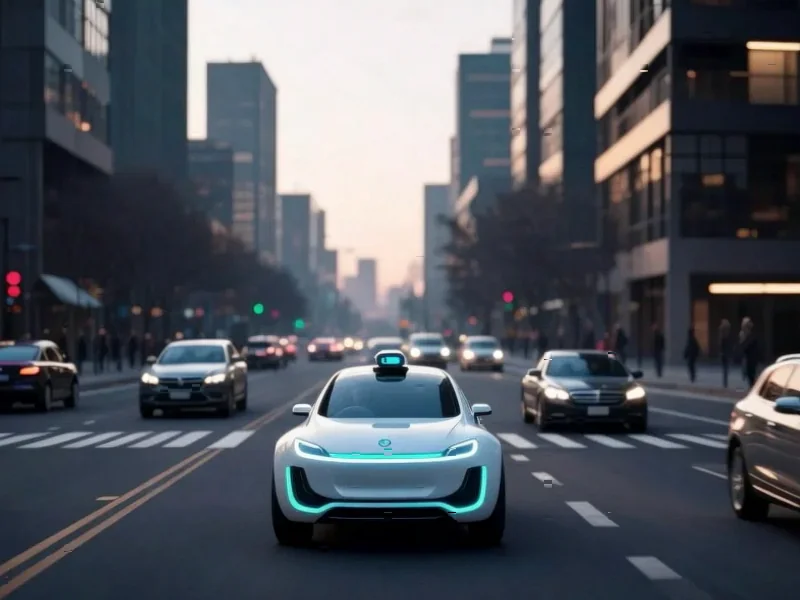According to CNET, Apple is planning to use a custom model of Google’s Gemini AI to power the next version of its virtual assistant Siri, targeting a spring 2026 launch. The report indicates Apple was evaluating whether to use Google or AI competitor Anthropic, with Google offering a better financial deal than Anthropic’s reported $1.5 billion annual cost. This custom Gemini model will run on Apple’s private cloud compute servers while Apple’s own models handle on-device personal data processing. The arrangement continues Apple’s existing $20 billion annual partnership with Google for default search engine placement on Apple devices. This strategic move signals Apple’s recognition that it needs external help to compete in the rapidly evolving AI landscape.
The AI Alliance That Changes Everything
This partnership represents a fundamental realignment in the AI competitive landscape. While Apple and Google have historically been fierce competitors in mobile operating systems, they’re now forming what amounts to an AI superpower alliance against Microsoft’s deepening partnership with OpenAI. The implications are staggering – we’re witnessing the formation of two dominant AI ecosystems that could control the future of consumer technology. For Apple, this move acknowledges that even with its massive resources and engineering talent, catching up in generative AI requires partnerships rather than pure internal development. The company’s recent Apple Intelligence announcement showed promising direction, but clearly lacked the advanced capabilities that Google and OpenAI have developed.
Winners, Losers and Market Shakeup
The immediate market consequences are profound. Google emerges as the biggest winner, securing what could become the most valuable AI partnership in consumer technology while maintaining its lucrative search arrangement with Apple. Microsoft and OpenAI face their most significant competitive threat yet, as the combined distribution power of Apple’s ecosystem with Google’s AI technology creates a formidable alternative. Anthropic appears to be the primary loser, missing out on what could have been a transformative partnership that might have elevated them to true competitor status against OpenAI. For consumers, this could mean accelerated AI feature development across platforms, but also raises concerns about market concentration and reduced competition in the AI space.
Long-Term Strategic Implications
Looking beyond the immediate partnership, this deal reveals Apple’s strategic calculus about where AI fits in its product ecosystem. By keeping personal data processing on-device with Apple’s own models while offloading complex tasks to Google’s cloud-based Gemini, Apple maintains its privacy-first positioning while accessing cutting-edge capabilities. However, this creates a long-term dependency that could become problematic as AI becomes more central to the user experience. The arrangement also raises questions about whether Apple views AI as a core competency worth massive internal investment or as a feature to be sourced from specialists. Given Apple’s historical pattern of eventually bringing key technologies in-house, we might see this as a temporary bridge while Apple builds its own competitive AI capabilities.
Regulatory Storm Clouds Gathering
This partnership will undoubtedly attract regulatory scrutiny on multiple fronts. The existing Department of Justice case against Google already focuses on the search engine arrangement between the two companies, and adding AI to the mix creates even more complex antitrust considerations. Regulators may view this as further entrenching Google’s dominance in multiple technology sectors while limiting consumer choice. The timing couldn’t be more sensitive, with AI regulation being debated globally and major tech companies facing increasing antitrust pressure. How regulators respond could determine whether this partnership becomes the new standard for AI collaboration or gets challenged as anti-competitive behavior.
Ecosystem and Developer Impact
For developers and the broader technology ecosystem, this partnership creates both opportunities and challenges. Developers building for Apple’s platforms will gain access to more sophisticated AI capabilities through Siri integration, potentially accelerating AI-powered app development. However, they’ll also need to navigate the complexity of working with what’s essentially a hybrid AI system – part Apple, part Google. The partnership could also influence standards and APIs across the industry, as other companies position themselves to work with either the Apple-Google ecosystem or the Microsoft-OpenAI alternative. This bifurcation of the AI landscape means developers may eventually face pressure to choose sides, much like they did during the mobile platform wars between iOS and Android.





Your point of view caught my eye and was very interesting. Thanks. I have a question for you.